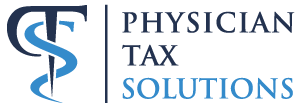Strategies for Doctors to Tackle Student Loan Debt Faster
Effective Strategies for Physicians to Reduce Student Loan Debt Quickly.
Student loan debt is a significant burden for many doctors in the US. With an average debt of around $234,597, it’s essential to find effective ways to pay off these loans quickly and efficiently. Here are some detailed strategies that can help:
1. Make Payments During Residency
Start Early: Making payments on your student loans while still in residency can be a game-changer. Even if it’s just covering the interest, it can prevent your loan balance from growing and reduce the overall amount you’ll pay overtime.
- Income-Driven Repayment Plans: Consider enrolling in an income-driven repayment plan, such as Income-Based Repayment (IBR) or Pay as You Earn (PAYE). These plans cap your monthly payments at a percentage of your discretionary income, making it more manageable to start payments during residency.
- Extra Payments: If possible, make extra payments whenever you receive bonuses, stipends, or gifts. Every little bit helps reduce the principal balance.
2. Refinance Your Loans
Lower Interest Rates: Refinancing your student loans can secure a lower interest rate, saving you money over the life of the loan and helping you pay off the debt faster.
- Compare Offers: Shop around and compare offers from multiple lenders to find the best rate and terms. Websites like Credible and LendKey can help you compare different refinancing options.
- Fixed vs. Variable Rates: Decide whether a fixed or variable interest rate is best for you. Fixed rates provide stability, while variable rates might start lower but can increase over time.
3. Increase Your Income
Boosting Earnings: Increasing your income can have a significant impact on your ability to pay off student loans.
- Extra Shifts and Side Gigs: Look for opportunities to work extra shifts or take on side gigs, such as locum tenens positions, medical writing, or consulting. These additional income streams can be directed towards your loan payments.
- Negotiating Salary: Don’t hesitate to negotiate your salary or seek higher-paying positions. Your skills and expertise are valuable, and securing a better compensation package can help you pay off debt faster.
4. Utilize Loan Forgiveness Programs
Public Service Loan Forgiveness (PSLF): PSLF offers loan forgiveness for doctors who work full-time for a qualifying employer, such as a government or non-profit organization, and make 120 qualifying monthly payments under a qualifying repayment plan.
- State-Specific Programs: Explore state-specific loan forgiveness programs that offer incentives for doctors working in underserved or rural areas. These programs often provide significant financial assistance and can help reduce your loan burden.
5. Live Frugally
Minimize Lifestyle Inflation: Keeping your living expenses low and prioritizing loan repayment can free up more funds to pay down your debt.
- Affordable Living: Choose a more affordable place to live and avoid the temptation to upgrade your lifestyle immediately after completing your training. Simple living can make a big difference in your ability to tackle debt.
- Mindful Spending: Be mindful of discretionary spending. Consider budgeting and tracking your expenses to ensure you’re living within your means and allocating as much as possible towards loan repayment.
6. Leverage Tax Savings
Tax Savings: Tax savings can play a crucial role in helping doctors pay off student loans faster. Here are a few tax-saving strategies to consider:
- Student Loan Interest Deduction: You can deduct up to $2,500 in student loan interest paid annually, which reduces your taxable income and lowers your tax bill. Ensure you meet the income requirements to qualify for this deduction.
- Retirement Contributions: Contributing to retirement accounts like a 401(k) or an IRA can reduce your taxable income, providing immediate tax savings and helping to build a retirement nest egg. The money you save on taxes can be directed towards loan payments.
- Health Savings Accounts (HSAs): Contributions to an HSA are tax-deductible, and withdrawals for qualified medical expenses are tax-free. This can help manage healthcare costs while saving on taxes.
- S-Corporation Tax Strategies: For self-employed doctors, electing S-corporation status can help reduce self-employment taxes by splitting income between salary and distributions. Consult a tax advisor to determine if this strategy is right for you.
- State-Specific Tax Benefits: Some states offer tax benefits or deductions for student loan payments, which can further reduce the overall tax burden. Research your state’s tax policies to take advantage of these benefits.
By implementing these strategies, doctors can accelerate their loan repayment journey and achieve financial freedom sooner. Remember, every little bit counts, and with dedication and smart financial planning, it’s possible to conquer student loan debt.
For expert tax planning and advice, contact physiciantaxsolutions.com
This post serves solely for informational purposes and should not be construed as legal, business, or tax advice. Individuals should seek guidance from their attorney, business advisor, or tax advisor regarding the matters discussed herein. physiciantaxsolutions.com assumes no responsibility for actions taken based on the information provided in this post.
